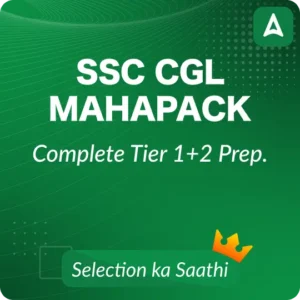Table of Contents
For RBI Grade B 2025 aspirants, solving RBI Grade B Previous Year Question Papers is a key preparation strategy. These papers reveal the exam’s structure, question types, and level of difficulty. By practising regularly, candidates can boost their speed, accuracy, and time management. Additionally, reviewing past papers highlights important topics and scoring opportunities, helping aspirants craft a targeted and efficient preparation plan for both Phase I and Phase II.
RBI Grade B Previous Year Question Papers
Each year, the Reserve Bank of India (RBI) opens a highly sought-after opportunity for aspirants to become Grade B Officers (DR) – General/DEPR/DSIM. Cracking this exam requires starting preparation well in advance and gradually intensifying efforts closer to the test. To support candidates in this journey, we’ve compiled a collection of RBI Grade B previous year question papers that serve as excellent practice material. These papers help refine exam strategies, improve accuracy, and boost overall readiness for the upcoming exam.
Check – RBI Grade B Notification 2025
Also Check – RBI Grade B Apply Online 2025 Link
RBI Grade B Previous Year Question Paper PDF
| Year | PDF Link |
| 2024 | Download PDF with Solutions |
| 2023 | Download PDF with Solutions |
RBI Grade B Phase 1 Previous Year Papers PDF Download
| Papers | Download Link |
| RBI Grade B Previous Year Question Paper 2022 | Download |
| RBI Grade B Previous Year Question Paper 2020 | Download |
| RBI Grade B Previous Year Question Paper 2019 | Download |
RBI Grade B Phase 2 Previous Year Papers
| RBI Grade B Previous Year Question Papers PDF | |
| GR-B-DR-Gen-Paper-III-Finance and Management 2010 | Click to Download |
| GR-B-DR-Gen-Paper-II-Economic and Social Issues 2010 | Click to Download |
| GR-B-DR-Gen-Paper-I-English 2010 | Click to Download |
| GR-B-DR-Gen-Paper-III- Finance and Management 2011 | Click to Download |
| GR-B-DR-Gen-Paper-II-Economic and Social Issues 2011 | Click to Download |
| GR-B-DR-Gen-Paper-I-English 2012 | Click to Download |
| GR-B-DR-Gen-Paper-III-Finance and Management 2014 | Click to Download |
| Gr-B-DR-Gen-Paper-II-Economic and Social Issues 2014 | Click to Download |
| Gr-B-DR-Gen-Paper-I-English 2014 | Click to Download |
| Gr-B-DR-Gen-Paper-II-English (Set B) 2015 | Click to Download |
| Gr-B-DR-Gen-Paper-II-English (Set A) 2015 | Click to Download |
Why Practice RBI Grade B Previous Year Question Papers?
RBI Grade B Previous Year Question Papers for Phase 1 and Phase 2 are a valuable resource for aspirants. They help candidates understand exam patterns, identify frequently asked topics, and adopt effective strategies. By practising these PDF papers, candidates can assess their preparation, improve weak areas, and boost confidence before the final exam.
- The previous year’s paper is an essential tool to assess the difficulty level of the exam, which in turn helps in making strategies for the exam.
- Candidates must practice RBI Grade B PYQs along with the latest mock test. It will help in checking the preparation level of the exam.
- Take the PYQs test and then analyse your weaknesses and strengths, and work on them.
Benefits of Solving RBI Grade B Previous Year Question Papers
Here are some key points on the benefits of solving RBI Grade B Previous Year Question Papers below:
- Understanding Exam Pattern: Solving previous year papers helps you become familiar with the exam format, including the types of questions asked, their distribution, and the overall structure of the test.
- Creating Exam Strategy: Understanding the question patterns and typical problems helps you formulate a better exam strategy, such as deciding which sections to tackle first and how to allocate your time effectively.
- Identifying Key Topics: By reviewing RBI Grade B PYQs, you can identify which topics are frequently covered and focus your studies on these areas to improve your chances of scoring well.
- Assessing Difficulty Level: Previous year papers give you a sense of the exam’s difficulty level, allowing you to adjust your preparation strategy accordingly and better handle the complexity of the questions.
- Improving Time Management: Practising with past papers helps you develop effective time management skills, ensuring you can complete the exam within the given time frame.
- Uplifting Confidence: Familiarity with the exam format and question types through past papers can increase your confidence, reducing anxiety and improving your performance on the actual exam day.
- Evaluating Preparation: Solving these papers allows you to assess your current level of preparation, pinpoint your strengths and weaknesses, and make necessary adjustments to your study plan.
How to Attempt the RBI Grade B Memory-Based Question Paper?
Here are some points on how you can attempt the RBI Grade B Memory-based Question Paper:
- Check the Exam Pattern: Know the number of sections, marking scheme, and time limits.
- Read Instructions Carefully: Understand guidelines for answering and navigating the exam.
- Review the Syllabus: Cover key topics like Quantitative Aptitude, Reasoning Ability, English Language, and General Awareness.
- Time Management: Allocate time based on your strengths. Prioritise strong sections but attempt all sections to maximise scores.
- Start with Strong Areas: Begin with sections you are comfortable with to build confidence and save time for tougher questions.
- Use Shortcut Techniques: Apply shortcuts and formulas for quick and accurate answers. Practice these techniques in advance.
- Eliminate Options: In multiple-choice questions, eliminate incorrect options to increase the chances of selecting the right answer.
- Manage Time Effectively: Monitor your time and ensure you complete the paper within the given timeframe.
- Review and Verify: If time allows, review your answers for errors or missed questions.
- Practice Regularly: Use mock tests and previous papers to improve speed, accuracy, and confidence.
Solutions for RBI Grade B Memory-Based Question Paper
RBI Grade B Previous Year Question Paper PDFs are a vital resource for effective exam preparation. Paired with memory-based solutions, they help candidates evaluate their performance and pinpoint areas for improvement. These solutions offer detailed, step-by-step explanations, enabling aspirants to understand concepts clearly, enhance problem-solving skills, and build confidence. Regular practice helps correct mistakes, clarify doubts, and strengthen overall mastery of the syllabus.

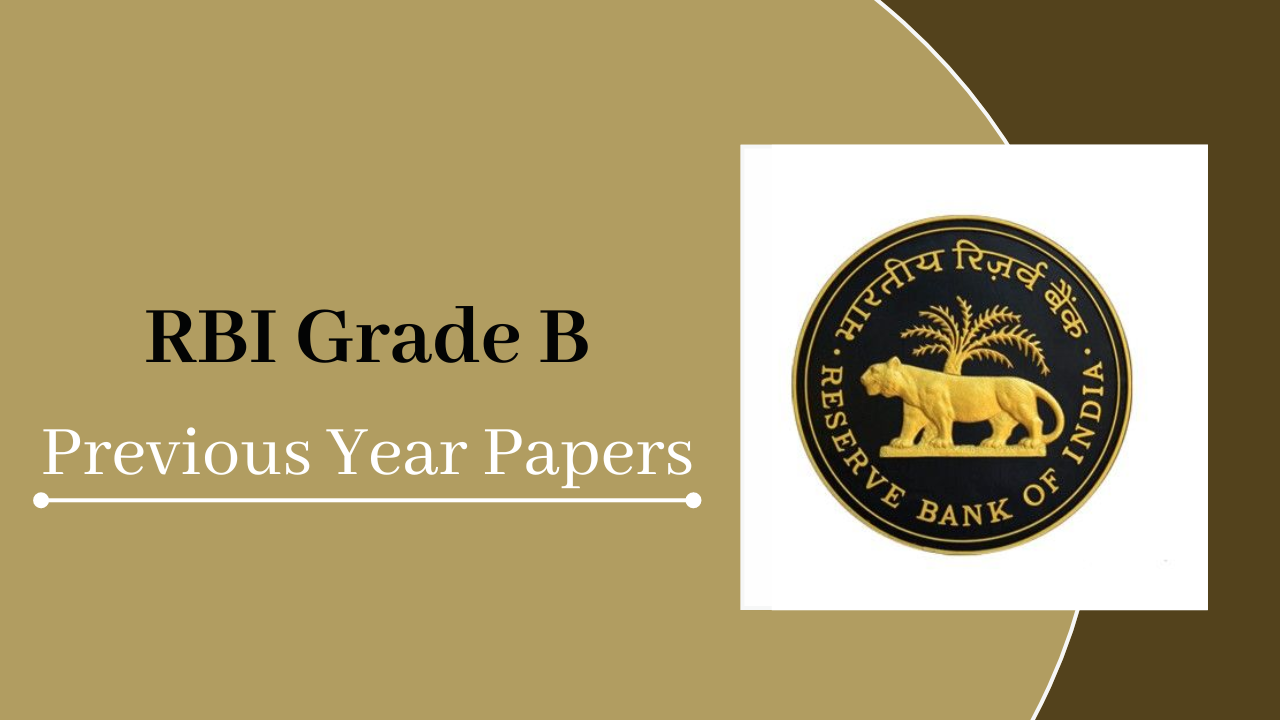
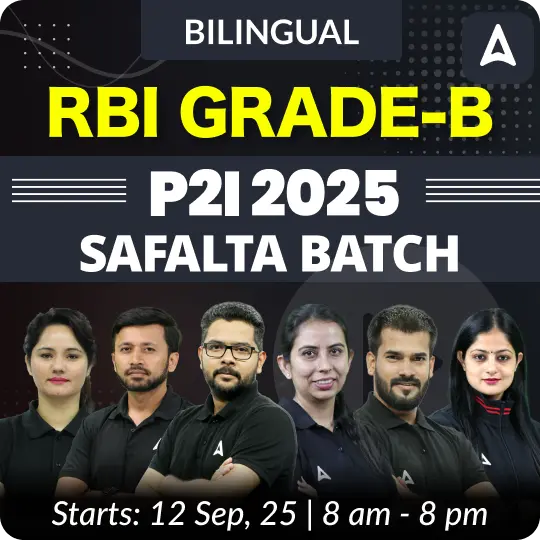

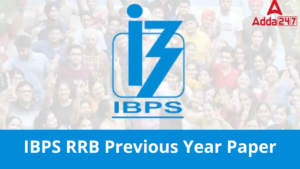 IBPS RRB Previous Year Question Papers, ...
IBPS RRB Previous Year Question Papers, ...
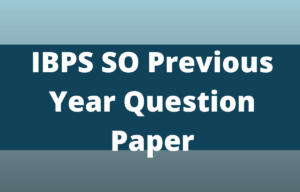 IBPS SO Previous Year Question Paper, Do...
IBPS SO Previous Year Question Paper, Do...
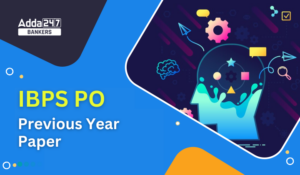 IBPS PO Previous Year Question Paper Wit...
IBPS PO Previous Year Question Paper Wit...

